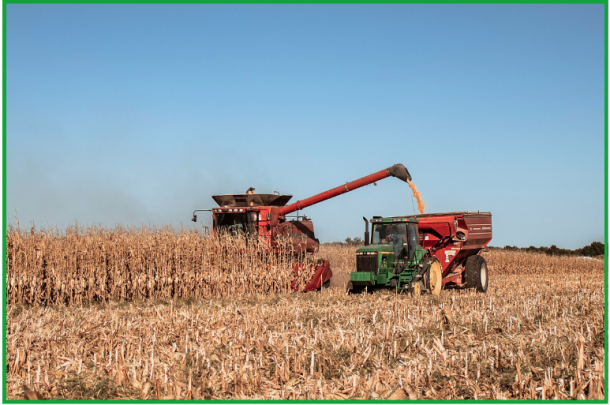
I laboratori
Strategic governance for a circular and sustainable economy.

The governance of organizations and their strategies often do not fully align with business models that promote a sustainable, circular economy. To foster this alignment, the Lab conducts research on the role of governing bodies, ownership, and management in formulating and conveying a strategic approach to sustainability.
Objectives
The Sustainability Governance Lab aims to study and promote the alignment of organizational governance strategies with sustainable and circular business models.
The goal is to understand the crucial role of governing bodies, ownership, and management in formulating and implementing strategies that promote sustainability (e.g., the creation and role of sustainability committees and positions like sustainability manager). The Lab investigates the impact of characteristics and skills of those in these roles (age, gender, education, professional experience), as well as how decision-making processes (top-down and/or bottom-up) are carried out and how results are monitored in terms of economic, financial, and sustainability performance. Another objective is to explore how traditional strategic planning can be integrated with sustainability planning, contributing to the transition towards more sustainable business models.
Challenges
One of the main challenges faced by the Sustainability Governance Lab is effectively integrating sustainability strategies within traditional governance models.
Organizations often struggle to reconcile traditional strategic planning with sustainability-oriented planning, creating potential conflicts that hinder the transition to circular business models. Additionally, the composition and expertise of governing bodies represent a critical challenge: the age, gender, education, and professional experiences of members can significantly influence the approach to implementing sustainability strategies. Another challenge is the measurement and reporting of ESG (Environmental, Social, Governance) performance, which requires the development of new indicators and effective monitoring tools.
Areas of Focus
The Sustainability Governance Lab works in several key areas to support the transition towards circular and sustainable business models.
A central focus is the study of the role of sustainability committees and sustainability managers, analyzing how their skills and personal characteristics influence corporate sustainability strategies. The Lab also examines the processes of sustainability planning and implementation, exploring how these integrate or conflict with traditional strategic planning. Additionally, the Lab is dedicated to researching sustainable business models, identifying successful characteristics and transformation paths for companies seeking to evolve from traditional to circular models. Finally, the Lab develops and refines tools for evaluating ESG performance, such as ESG ratings, sustainability reporting, and new KPIs, ensuring transparent reporting and effective internal monitoring.
The Sustainability Governance lab at the LOOP Research Center conducted research on behalf of CSV Vicenza, aimed at mapping Vicenza-based benefit corporations and analyzing their social practices related to volunteering and, more generally, collaboration with the local community.
Some of the research data was presented by Silvia Cantele, the lab's representative, during the episode of “Storie di Volontariato” (Stories of Volunteering) aired on TVA Vicenza on June 1, 2025.
Pubblicazioni in Sustainability Governance Lab
Network impact on business models for sustainability: Case study in the energy sector
Link to the article
The governmentality of corporate (un)sustainability: the case of the ILVA steel plant in Taranto (Italy)
Link to the article
Spreading Sustainability Innovation through the Co-Evolution of Sustainable Business Models and Partnerships
Link to the article
Untangling the Origins of Sustainable Commitment: New Insights on the Small Vs Large firms’ debate
Link to the article
Understanding the purpose of benefit corporations: an empirical study on the Italian case
Link to the article
Ambidextrous organizations for sustainable development: The case of fair-trade systems
Link to the article
Benefit Corporations in Italy: an analysis of diffusion and reporting practices
Link to the article
Organisational and professional challenges amid the evolution of sustainability reporting: a theoretical framework and an agenda for future research
Link to the article
Integrated reporting and analyst behaviour in diverse institutional settings
Link to the article
Financial analysts’ reaction to voluntary integrated reporting: cross-sectional variation in institutional enforcement contexts
Link to the article
Characterizing the mission statements of benefit corporations: Empirical evidence from Italy
Link to the article
New challenges in reporting on Corporate Governance
Link to the article
Repairing legitimacy through discourses: Insights from the Volkswagen's 2015 diesel scandal
Link to the article
The journey of corporate reporting toward sustainability
Link to the article
Co-production ‘thinking’ and performance implications in the case of separate waste collection
Link to the article
The transition towards benefit corporations: What are the roles for stakeholders?
Link to the article
Impactful B Corps: A configurational approach of organizational factors leading to high sustainability performance
Link to the article
Supply chain agility and sustainability performance: A configurational approach to sustainable supply chain management practices
Link to the article
Beyond the business case? Retracing the walk of Corporate social responsibility and financial performance relationship in the Oil and Gas sector
Link to the article
The “milky ways”: emerging sustainable business models for sustainable value creation in the dairy industry
Link to the article
The contribution of manufacturing companies to the achievement of sustainable development goals: An empirical analysis of the operationalization of sustainable business models
Link to the article
Mission statements and financial and sustainability performance: An exploratory study of Benefit Corporations certified as B Corps
Link to the article
Partner selection strategies of SMEs for reaching the Sustainable Development Goals
Link to the article
Knowledge sharing in family SMEs: the role of communities of practice
Link to the article
Reporting challenges and organisational mechanisms of change: a Latourian perspective on risk disclosure of a pioneer company in integrated reporting
Link to the article
Stakeholder engagement in the public utility sector: Evidence from Italian ESG reports
Link to the article
Mission statement and social impact: Shedding light on the contribution of Italian B corps to society
Link to the article
How do firm social practices produce social impacts? Investigating the role of social and long-term orientation
Link to the article
The Interaction of Sustainability Governance Structure and Sustainability Management Control Systems: An Italian Case Study
Link to the article
Convergences and divergences in sustainable entrepreneurship and social entrepreneurship research: A systematic review and research agenda
Link to the article
Towards greener hospitals: The effect of green organisational practices on environmental sustainability performance
Link to the article
Business Model Innovation Toward Sustainability: A Case Study in Outdoor Fitness Equipment
Link to the article
Sustainable but Not Accountable? A Quality Assessment of Sustainability Disclosure in Benefit Corporations
Link to the article
Commodity risk and corporate income dynamics
Link to the article
Paths to sustainability: the experience of Mantua-based companies
Link to the article




